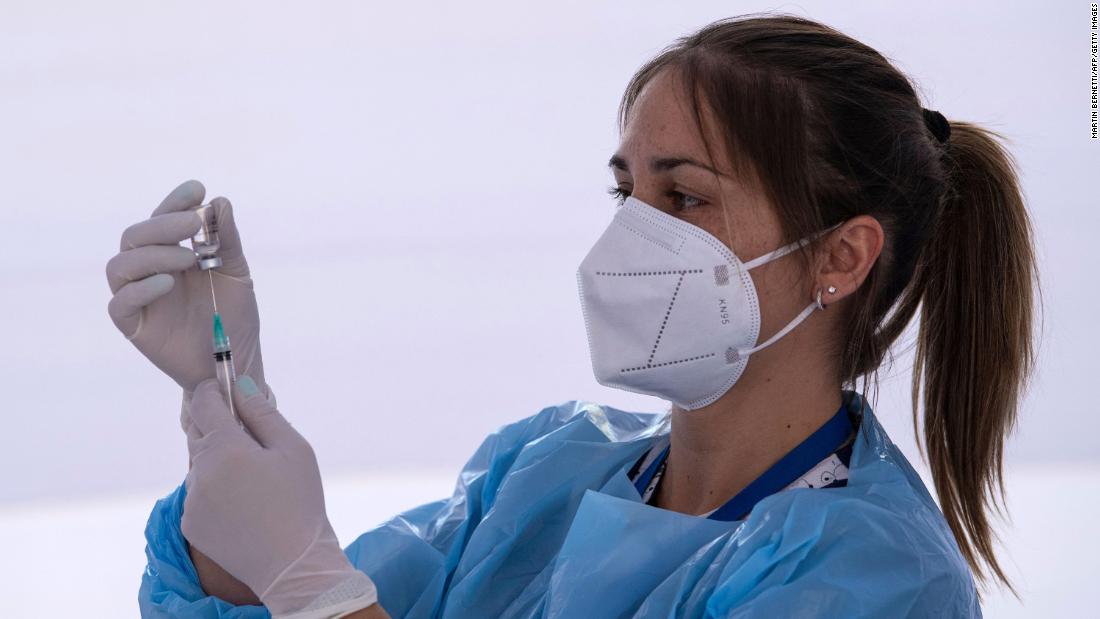
Yet the pandemic has hardly abated. Last week, Chile broke records for the number of daily cases since the start of the pandemic on two consecutive days: 8,195 new Covid-19 cases on Thursday and 9,171 on Friday. And while the number of new cases diagnosed per day has fallen this week, the reality is that a spike that started in December has steadily continued in Chile.
On Wednesday, Chile approached a total of 1.1 million Covid-19 cases. According to data from Johns Hopkins University, nearly 25,000 people had died from the disease. What went wrong?
Health authorities, experts and journalists consulted by CNN say the world can learn a lot from a multi-factor, ‘perfect storm’ that hit Chile, starting with Christmas gatherings and New Years celebrations, an ongoing push to reopen all schools and malls, and expect a sense of security given the rapid vaccination rate and less than desirable levels of effectiveness of the Sinovac vaccine, which is widely used in the country.
Francisco Álvarez, a public health expert and until recently the director of the health department in the province of Valparaíso, Chile’s second most populous province, says it all started with the relaxation of Covid-19 restrictions around the end of the year holidays.
“Just before Christmas, we saw entire families shopping for presents and shopping centers were crowded. From January, people were allowed to travel between provinces to go on vacation and the virus traveled with them,” said Álvarez. January is summer in the Southern Hemisphere and Chile is typically peak season for domestic and international travel.
Álvarez, who had his own fight with Covid-19 last summer and spent weeks in hospital, also said there would be crowds on the beaches in Valparaíso province, a top tourist destination and although his office organized mobile testing sites, people would refuse that to do. get tested because “they didn’t want to be disturbed while on vacation.”
“People got two misleading messages: you can go on vacation anywhere in the country or abroad and we are one of the top countries in Latin America in terms of vaccination. People understood that the risk of contracting the virus is probably over. That created the perfect storm, ”said Álvarez, adding that there were also many Chileans who traveled to Europe and other countries with a high incidence of cases, adding to the peak.
While in his previous post in the health department of Valparaíso, Álvarez’s office documented 60 infections from mostly young people who attended the same clandestine New Year’s Eve party, while such gatherings were still banned.
The establishment where the party was held was fined the equivalent of approximately $ 71,000. A young man who was not quarantined after testing positive for Covid-19 was fined the equivalent of about $ 35,000.
There were at least six clandestine parties attended mainly by young people coming from the capital, Santiago. That caused Covid-19 peaks in a region that had a relatively low number of cases until then. Infections among the local population also started to increase.
Health Minister Enrique Paris said on Tuesday that while it is true that some measures were relaxed in December, he has never told people to stop following preventive measures. “We have been quarantined in the metropolitan region for 14 days and we are seeing good results along with our vaccination efforts.”
“We never said vaccination would be the only answer. We have to vaccinate, but we also have to consider other things, such as reduced mobility, wearing masks, washing hands and social distance, so that the virus does not spread. , ‘Said Paris.
While it’s too early to say whether that contributed significantly to the spike in cases, high-profile cases in Chile of people vaccinated and still hospitalized with the disease have sparked fear in the country.
Gao Fu, director of China’s Center for Disease Control and Prevention, has recognized the less-than-ideal efficacy of Chinese Covid-19 vaccines, saying at a conference in Chengdu on Saturday that “the protection rates of existing vaccines are not high.”
Nevertheless, the Coronavac vaccine is believed to be more effective in severe cases. Researchers at Brazil’s Instituto Butantan earlier this year confirmed the Coronavac’s low overall efficacy, but found the vaccine to be 78% effective in controlling mild cases and 100% effective for moderate and severe cases.
Izkia Siches, head of “Colegio Médico”, the largest medical association in Chile, has criticized the government’s response to the pandemic by saying people are allowed to travel during the holidays, mixed reports from the top and lack of resources in local clinics. the problem.
Paris, who has been in his post since June, later acknowledged that Chile “has made mistakes that probably hurt many families. I ask for your forgiveness. We have done everything we can to do things the best we can.”
Christopher Ulloa in Santiago contributed to this report.

